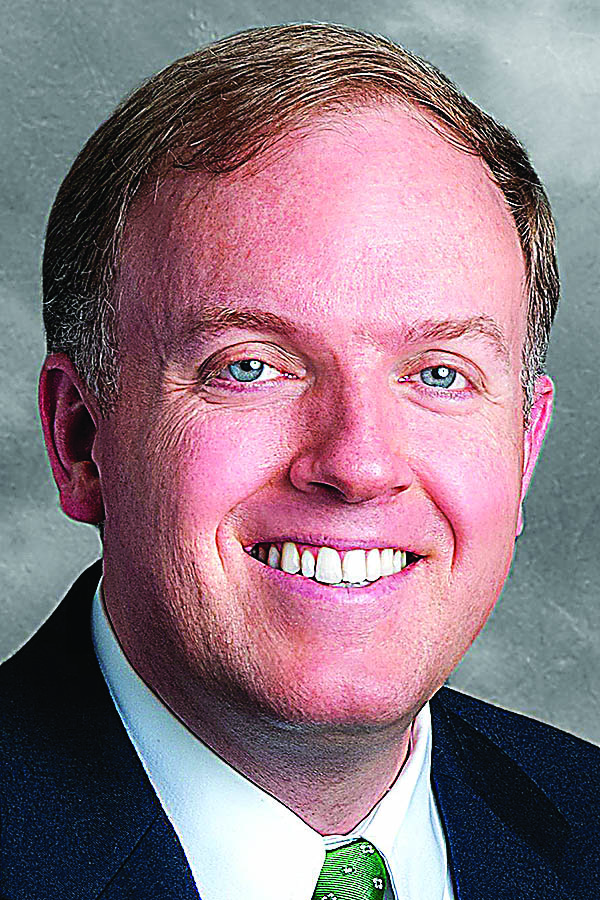International program brings African farmers to Indiana for mentoring
Published 12:21 pm Thursday, August 3, 2017
CAMDEN, Ind. — Dina Kikuli and Atinuke Lebile are working to change Africa, one crop at a time.
The two 29-year-old African agriculture entrepreneurs visited farms near Lafayette, Indiana, and other parts of the state over the past six weeks through the Mandela Washington Fellowship. They spent time at Mylet Farms near Camden, Indiana, learning how a modern high-tech farm operates.
The fellowship, sponsored by the U.S. Department of State and an initiative of former President Barack Obama, supports 1,000 young leaders each year from sub-Saharan Africa who have a passion to change the continent and their countries through entrepreneurship, civic leadership and public management. Purdue University hosted 25 leaders focused on engineering or agriculture. Kikuli and Lebile were among the 1,000 chosen out of 64,000 applicants from Africa.
Kikuli runs an agribusiness of rice processing and distribution. She’s working to address the issue of lack of access to the market, connecting farmers to consumers in her native Tanzania.
Lebile, who’s from Nigeria, cultivates vitamin A cassava crops as well as rice and vegetables. Many people in Nigeria and across Africa are malnourished due to a vitamin A deficiency. Lebile is working with a company that creates varieties of cassava root crops rich in vitamin A.
In coming to the United States, Lebile and Kikuli said they’ve learned much about combining technology with farming. The majority of African farmers tend to their crops by hand, which Kikuli said takes time and is inefficient. Lebile said only large African companies use machines — something that’s quite the opposite for farming in the U.S.
“We really needed to be here,” Lebile told the Logansport, Indiana Pharos-Tribune, adding that seeing technology used for farming inspired them to take that knowledge back to their countries.
Neil Mylet, owner of Mylet Farms, showed Lebile, Kikuli and two other African farmers how to incorporate technology and agriculture. Mylet uses technology daily on his family’s farm; he has a smartphone app to load grain from trucks to storage containers.
African farmers lose about 40 to 60 percent of their crops, Lebile and Kikuli said, because of a lack of storage. Mylet showed them how he stores grain at his farm and other machinery.
Lebile and Kikuli visited other farms and factories in the area, including Chicago and Indianapolis.
Kikuli said the fellowship has helped her think outside the box in developing her company. She wants to create an app that connects farmers to the market and provide information such as what crops consumers want and how to price products.
The program, however, has made Kikuli realize that her company isn’t performing as well as it could, a feeling her mentor said is normal for small businesses.
“Rather than keeping on doing something for two years, three years and it’s not working out, it’s better to face it,” Kikuli said. “It has really been helpful. So things are not going to be the same.”
Lebile is also part of an initiative called She Agric, which encourages African women ages 18-35 to work in agriculture. Over the course of a year, the women plant and tend to crops and are mentored on how to sell products in the market and create a sustainable farm.
Sponsors pay $150 for each woman to join the program, and the participants keep all of the profits they make through the year, Lebile said.
“We make everything free for those people because we really want to encourage them,” Leblie said, adding that there is considerable food insecurity in Nigeria and other parts of Africa.
Mylet said he’s excited to see how Lebile and Kikuli are inspiring their countries, stories he hopes could also resonate with young people in the area. He’s had about 250 international visitors from 30 countries visit his farm over the past decade.
“Just seeing the fire in these people is really, really humbling because it makes us remember that we’re so fortunate for all the opportunities we have, yet sometimes we can kind of be complacent in how we see the world,” he said.
Middelkamp writes for the Logansport, Indiana Pharos-Tribune.





